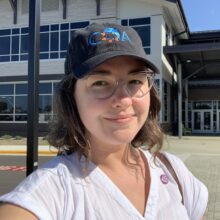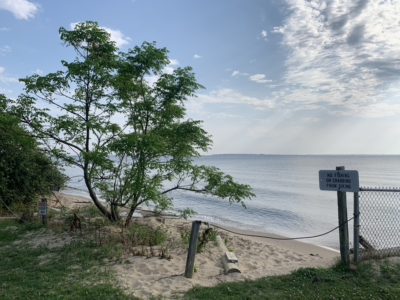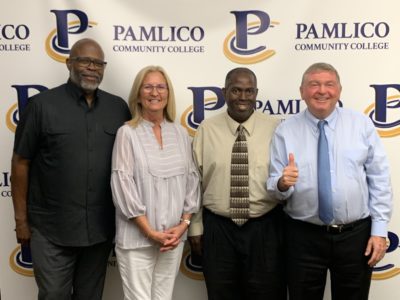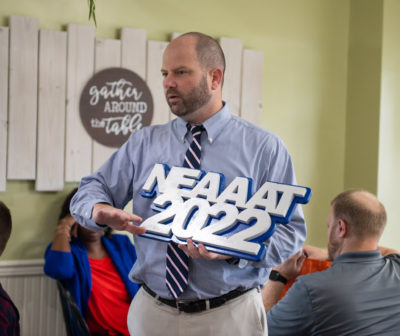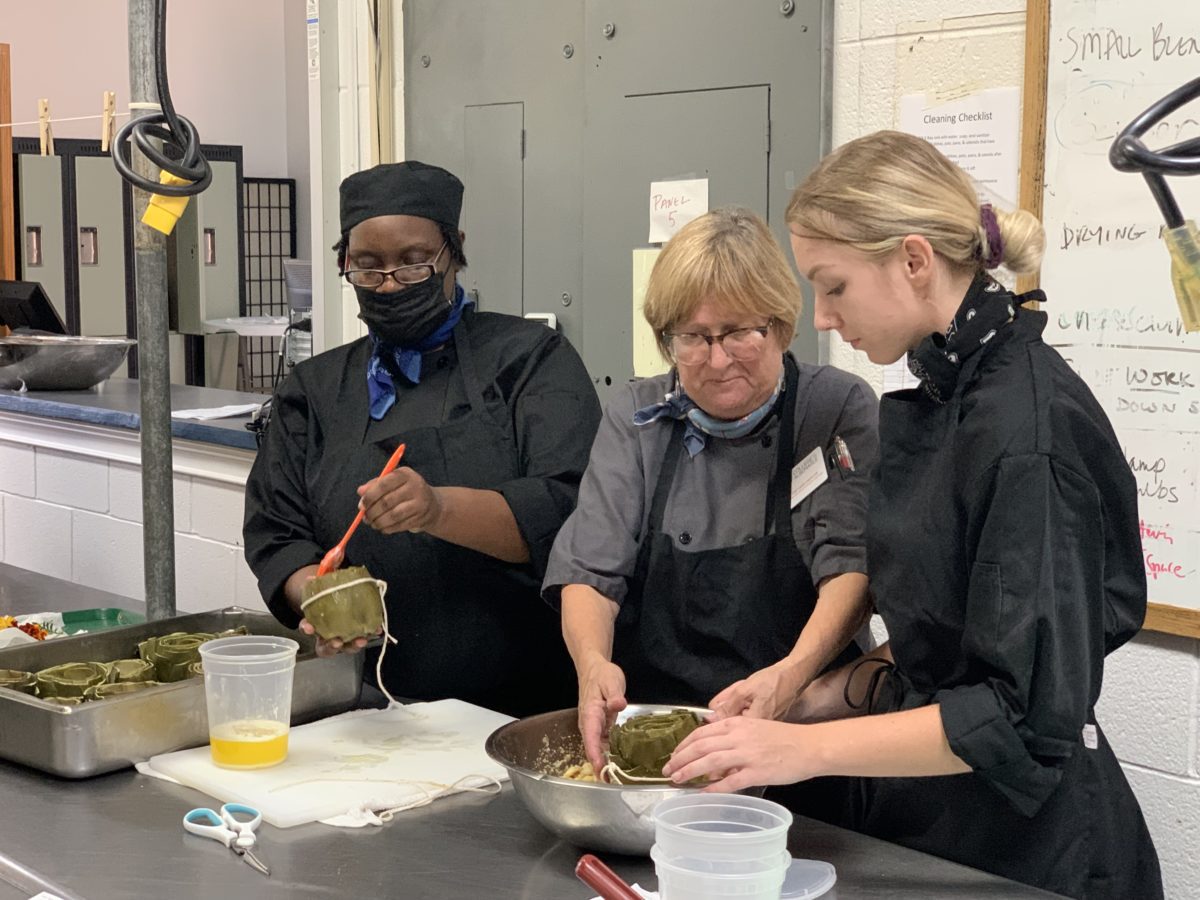

|
|
College of The Albemarle (COA) serves more counties than any other community college in the state. That can make pinpointing its economic impact a distinctive challenge.
According to an economic impact report published this year, COA has a total annual impact of more than $105 million. For every dollar invested in COA, students gain $5.40 in lifetime earnings, taxpayers gain $1.70 in added tax revenue and public sector savings, and society gains $7.70 in added state revenue and social savings, the report says.
If anyone could offer informed insight into the college’s impact, it’s Paul O’Neal. In addition to serving as a Currituck County commissioner for 20 years, he recently finished his term as chair of COA’s Board of Trustees and has been affiliated with the college in various capacities since 1994. According to local news reports, he’s also the most likely person to fill the vacated NC House seat in District 6.
When EdNC asked O’Neal for specific examples of COA’s economic impact, he said, “It’s really a hard question, because the community college is so intertwined in every county of our service area.”
That service area covers the northeast corner of North Carolina — Camden, Chowan, Currituck, Dare, Gates, Pasquotank, and Perquimans counties.
Filling local jobs
COA’s Edenton-Chowan campus offers a glimpse into how the college is intertwined with its communities. Along with the Edenton-Chowan Public Schools district office and the Boys & Girls Club of the Albemarle’s Chowan Club, it’s located in the old D.F. Walker Elementary School in Edenton. The site is half a block from John A. Holmes High School.
Jack Bagwell, COA’s president, imagines an “education district” here in the future, with walking paths and pedestrian crosswalks integrating the sites even more.
“Visibility gives rise to opportunity,” Bagwell said.
If high school students spend four years with easy access to COA’s campus, Bagwell says, they’ll see their opportunity to be integral to the future of their community — from restoring the historic Kadesh A.M.E. Zion church in Edenton, to installing fiber optic broadband networks elsewhere in the county.
These local opportunities are already available to COA’s students.
“[The HVAC] as well as the culinary program have work-based learning opportunities, which allows the students to go into the business and do kind of an internship with some of the local businesses around here,” said Evonne Carter, vice president of COA’s learning division. “And many, many times those people get hired full time as soon as they graduate.”
Edenton-Chowan Public Schools Superintendent Michael Sasscer also has worked with COA to create an agribusiness pathway for students participating in the Career and College Promise program.
“That’s an opportunity for our students, especially in a heavily agricultural community, to access and support that economic growth and impact,” Sasscer said.
‘Nothing prepares you for college like college’
Another way to think about how COA is intertwined with the economic success of its community is through the experiences of a handful of local leaders.
When Bagwell was being interviewed for his position as COA’s president, he noticed a pattern he hadn’t encountered at the previous community colleges where he had worked.
“There are more COA people that are running things in this area than I have typically seen,” Bagwell said.
Pasquotank County is home to several examples.
One is Sharon Warden, chair of the Elizabeth City-Pasquotank Public Schools (ECPPS) Board of Education — my former high school librarian.
Another is David Harris, chair of COA’s Board of Trustees and retired vice president of J.W. Jones Lumber Company, who also served on the Elizabeth City Board of Adjustment.
In a recent meeting with EdNC, both attributed their career trajectories to starting their post-secondary education at COA.
“I went two years to COA, worked, saved money, and transferred to East Carolina [University] to get a four-year degree,” Harris said. “Without COA, I probably never would have gotten a four-year degree.”
Other local leaders send their own children to COA.
Currituck County Schools Superintendent Matt Lutz has two children who have taken advantage of COA’s programs for high school students.
“And I’m certainly planning on a third doing the same thing,” Lutz said.
Echoing an axiom from Denise Fallon, principal of J.P. Knapp Early College in Currituck County, Lutz explained why he thinks it’s important for high school students to learn at COA: “Nothing prepares you for college like college.”
Sen. Bobby Hanig, a Republican who represents Camden, Chowan, Currituck, Dare, Gates, Hertford, Hyde, Pasquotank, Perquimans, Tyrrell, and Washington counties, said he takes great pride in his own daughter finding her path to a teaching career through COA.
In an interview with EdNC, Hanig described his daughter as a “small-town USA girl” who started her postsecondary education at a large four-year university. He said she quickly realized a large institution wasn’t the right educational setting for her. She returned home to Currituck and enrolled at COA.
“It really changed her life,” Hanig said. “She flourished.”
Hanig attributes her success to smaller class sizes, the opportunity for one-on-one instruction, and the accommodating and helpful attitudes of instructors.
After two years at COA, Hanig’s daughter transferred to Elizabeth City State University and earned her teaching degree. Now she teaches at Jarvisburg Elementary School in Currituck.
“Without COA,” Hanig said, “no chance that would have been possible. No chance.”
‘That’s my story’
Other local leaders whose educational experiences aren’t directly connected to COA still trace the trajectory of their lives to community colleges. They cite their stories as their reasons for supporting COA and working closely with the school to provide economic opportunities for students.
ECPSS Superintendent Keith Parker told EdNC about the role community college played in his parents’ lives.
“They grew up farming — very, very poor — in eastern North Carolina and actually had to drop out of high school to work on the farm,” Parker said.
When Parker’s oldest brother was born, his parents went to their local community college to earn their GEDs.
“We have a little clipping from the newspaper where the teachers in the class let my mom take my brother, he’s a little baby, with them to the class,” Parker said. “I think that symbolizes that community college, like public schools, serve a lot of different people that have a lot of different needs.”
Bob Woodard, chair of the Dare County Board of Commissioners, is another of those people.
“I’ll be real upfront and honest with you: I wasn’t worth a damn in school,” Woodard said. “I was humiliated, quite frankly, in school. D’s all across the board.”
Woodard described having no confidence in himself outside of sports. “I was always putting myself down academically,” Woodard said.
Not long after graduating high school, Woodard was drafted into military service. He’s still grateful for that experience and frames it as a wakeup call. He decided to continue his education after his tour, but it was slow going, he said.
“When I got home, I went to school at night for 10 years before I got an associate’s degree,” Woodard said.
That put him on a path to becoming a mechanical drafter at a naval air station, and later to a career in the insurance industry. He’s retiring this month at age 76.
During his time as a county commissioner, Woodard has been a fierce advocate for rebuilding COA’s Dare County campus.
For decades, that campus was housed in two Manteo buildings — a former high school and a former roller rink.
In August, COA opened the doors to those buildings’ replacement, a 36,000-square-foot facility that matches what President Bagwell referred to as “the Manteo aesthetic.”
In this new space, students can now take classes in programs that previously would have required them to make the 90-minute drive to Elizabeth City.
Woodard draws a straight line between his own tumultuous educational journey and his commitment to COA’s new Manteo campus.
“That’s my story,” Woodard said. “Every kid shouldn’t have to go through what I went through.”
